This article was co-authored by Wendy Powell and by wikiHow staff writer, Amy Bobinger. Wendy Powell is a Maternal Health and Exercise Specialist and the Founder and CEO of MUTU System, the world's best-selling, medically recommended online fitness education program for mothers. Wendy specializes in pregnancy, post-baby recovery, postpartum exercises, fitness education, and body confidence. Wendy works to shift the conversation on women's bodies towards equality and empowerment for health, confidence, and power. She is a published author, international speaker, and award-winning entrepreneur. Wendy is on the Women's Development Board of the MicroLoan Foundation and is a frequent contributor to the BBC. MUTU System has been featured in Vogue, the Huffington Post, Fox News Health, Daily Mail, and The Guardian, and is recommended by Hollywood Trainer, Jeanette Jenkins.
There are 18 references cited in this article, which can be found at the bottom of the page.
This article has been viewed 47,780 times.
Your pregnancy is an exciting time, but it can also be pretty challenging to navigate all the changes your body will go through. However, it can help a lot if you have an idea of what to expect. Being informed will help you feel more prepared as you go through each stage of your pregnancy, and it can be very helpful to understand that many other women have gone through the exact same things you're experiencing!
Steps
First Trimester (Weeks 1-12)
-
1Estimate your conception date as 2 weeks after your last period. It can be a little tricky to figure out exactly when your pregnancy started. However, most doctors will date your conception at about 2 weeks after the end of your last period.[1]
- Typically, an egg will be fertilized 2 weeks after your period. It will then stay in your fallopian tubes for about 3 days, and then it will travel down to your uterus.
- You may have noticed some light spotting about 2-3 weeks after your last period. That's totally normal, and it's called implantation bleeding because it occurs when the embryo implants itself in the lining of your uterus.
- Many women first realize they're pregnant when they miss their period, making it easy to estimate conception. If you're not sure, though, your doctor will be able to estimate when you conceived once you have your first ultrasound.
-
2See your doctor if you have a positive home pregnancy test. When you realize you're pregnant, it's important to start getting proper medical care as soon as possible. Call your primary healthcare provider or OBGYN and let them know you need to schedule an in-office pregnancy test. Once you're there, they'll confirm your pregnancy and talk to you about the next steps you need to take.[2]
- Typically, a home pregnancy test will be able to detect that you're pregnant by about a week after your missed period.[3]
- Your doctor will likely give you tips on having a healthy pregnancy, including the foods you shouldn't eat, medications and supplements to avoid, and what activities are safe for you and your baby.
Advertisement -
3Take prenatal vitamins to help your baby's brain develop. When you see your doctor, they'll likely recommend that you start taking a prenatal vitamin containing folic acid as soon as possible. You need about 400mcg of folic acid each day to help your baby's brain and spine develop.[4]
- If you're not pregnant yet but you're planning to be, it's a good idea to start taking folic acid before you ever conceive. That way, it will be present in your body from your baby's earliest moments.
-
4Be prepared to feel tired and sore during this trimester. Feeling fatigued is one of the earliest symptoms that you might experience when you're pregnant. Your body is going through a lot of changes, so this is a totally normal reaction. Don't try to push through it—stop and rest any time you start feeling tired, even if it's just for a few moments.[5]
- You might also experience headaches, body aches and pains, leg cramps, shortness of breath, and swelling in your hands, legs, and feet.[6]
- It's very normal to have tender or sore breasts at this stage in your pregnancy, as well. This is due to hormonal changes in your body.[7]
- You may notice that you sometimes feel dizzy, or you might even faint.[8]
-
5Understand that morning sickness can happen at any time of day. Although not everyone will experience it, morning sickness is an unpleasant and very common symptom during the first trimester. You might feel nauseous or throw up, or you might just have an upset stomach. And, unfortunately, it's not reserved for just the morning time—you might get a wave of nausea at any point throughout the day.[9]
- Eating small, frequent meals and drinking small amounts of fluids throughout the day may help alleviate your morning sickness symptoms. It might also help to avoid spicy, fatty, or rich foods, and try to avoid strong smells if you're able to.[10]
- If your morning sickness is severe, talk to your doctor—if you don't address it, you could become dangerously dehydrated.
- You might also find that you have to urinate more often than usual or that you're constipated or have heartburn or indigestion.[11]
-
6Don't be surprised if your taste for certain foods changes. Food cravings and aversions are very common during pregnancy, especially during the first trimester when you're already more prone to morning sickness. You might find yourself desperately wanting a food you've never cared much for, for instance, or you may suddenly find that you can't even smell a dish you normally love.[12]
- For instance, you might find that you suddenly hate garlic or that you can't get enough milk.
- As long as you're following a mostly healthy diet, go ahead and indulge in your cravings once in a while (unless it's something you're not supposed to eat while you're pregnant, like sushi). Just don't overdo it if your cravings are for junk food.
-
7Be patient with yourself through mood changes. Hormonal fluctuations during your first trimester can make you feel everything from anxious to elated—and sometimes you might swing from one extreme to the other in very short order. It's not very fun, but it is normal, so try not to beat yourself up too much if you find yourself reacting in a way that's out of the ordinary.[13]
- It's normal to have some fears about going through the birthing process and raising a child. It can help to lean on your support system when you're having these feelings.
- You might also feel concern about your changing body. Try not to stress too much about any weight gain—the most important thing is that you and your baby stay healthy.[14]
- Being pregnant can sometimes unearth buried feelings about your own past and anxieties about the future, and it's important to know that's really common. However, if you feel deeply sad for a long period of time, you might be suffering from perinatal depression, and you should talk to your doctor about it.[15]
-
8Learn about the changes your baby will be going through. During the first trimester, your baby will develop their major organs, and their heart will start to beat regularly. They'll also develop their arms, legs, fingers, toes, and sex organs.[16]
- By the end of the first trimester, your baby will be about 3 in (7.6 cm) and will weigh about 1 oz (28 g).
- Use a weekly pregnancy calendar to help you learn more about your baby's development.
Second Trimester (Weeks 13-28)
-
1Expect a slightly easier time during the second trimester. Fortunately, most people find that the second trimester of pregnancy isn't quite as hard as the first. You might have less fatigue and morning sickness, although it may persist through the second trimester for some women.[17]
-
2Be prepared for changes in your skin and body. Your baby will do a lot of growing during the second trimester, and so will your body. Your breasts will likely become larger and your baby belly will probably become more apparent during this time. You may also develop stretch marks on your stomach, breasts, legs, or bottom.[20]
- You may also notice darker skin on your body. This commonly occurs around your nipples or on your face. You might also see a line forming that runs from your belly button down to your pelvic bone.
-
3Expect some discomfort as your baby grows. While you might find that you feel healthy and strong throughout your second trimester, it's common to have some aches and pains as your body changes. Pains in the back, groin, and abdomen are common, and you might develop carpal tunnel syndrome, even if you've never experienced it before.[21]
- It's normal to have some itching on your abdomen or on your palms or the soles of your feet. However, if this is accompanied by nausea, vomiting, or loss of appetite, call your doctor—it could indicate a liver problems.
- Some swelling in your ankles, fingers, and face is normal. However, if the swelling is sudden or extreme, call your doctor, as it could be a sign of preeclampsia.
-
4Anticipate that food cravings and aversions will continue. Don't be surprised if you still have food cravings, or if there are some foods you still can't stand. Although these reactions are typically strongest during the first trimester, you might experience them throughout your entire pregnancy.[22]
- Remember to follow your doctor's advice for eating a healthy diet during your pregnancy.
-
5Prepare to feel your baby move at around 18-20 weeks. You might be eagerly anticipating that first little kick, but you typically won't feel any movement until you're about halfway through the second trimester. The earliest movements will be subtle, but as your baby gets bigger, they'll become much more obvious.[23]
- At first, your baby's movements will feel like a little flutter in your belly. This is called "quickening."[24]
- If you've been pregnant before, you might be able to pick up movements a little earlier than if it's your first pregnancy.
- Some doctors will advise you to count your baby's movements during this time, but others will not, especially if you're having a healthy pregnancy.[25]
-
6Don't be surprised if you have complicated emotions during this time. During the second trimester, you might feel the reality of your pregnancy setting in, especially as your belly starts to show and you start feeling your baby move. You'll also have some testing done during this period, and it's normal to feel anxious about those.[26]
- Even if you're happy about welcoming a new baby, it's okay to feel anxious or afraid about it. However, if you find that you're struggling to feel happy most days, talk to your doctor—you might be suffering from depression.
-
7Expect your baby to continue developing. During the second trimester, your baby will form muscles, bones, skin, eyebrows, eyelashes, fingernails, and toenails—wow! They'll even have fingerprints and footprints. Your baby will be also be able to hear and swallow, and they'll start to get on a regular sleeping schedule.[27]
- If you're interested in learning the sex of your baby, your doctor will probably be able to determine it during this time.
- By the end of the second trimester, your baby will be about 12 in (30 cm) long and weigh about 1.5 lb (0.68 kg).
Third Trimester (Weeks 29-40)
-
1Expect many of the same symptoms you had in the second trimester. Typically, the third semester is similar to the second, but you may feel more tired and achy as your body grows. During this time, your doctor will start working with you to finalize your birth plan, and you'll likely find yourself nesting as you prepare your home for a new baby.[28]
- Heartburn is common during pregnancy, especially as your baby grows throughout the third trimester. Try to stick to bland foods, and avoid anything fatty or spicy. Talk to your doctor about an antacid if it continues.[29]
- Expect swelling in your ankles, fingers, and face to continue. However, if the swelling is severe or appears suddenly, call your doctor to rule out preeclampsia.[30]
- Other symptoms might include hemorrhoids, trouble sleeping, and your belly button sticking out.[31] Varicose veins are also common, because the blood flow in your legs is slower.[32]
-
2Understand that your baby will begin putting pressure on your organs. As your baby grows, there's less room inside you for, well—you! You might notice that it's harder to breathe as your baby presses on your lungs, so try not to overexert yourself, especially in the final weeks of pregnancy.[33]
- You might also have to urinate more often as your baby starts to press on your bladder.
- Late in the third trimester, your baby may move lower in your abdomen to prepare for birth.[34] When this happens, you may find that it's easier to breathe, since there won't be as much pressure on your lungs.
-
3Wear breast pads if your breasts start leaking. While you've probably had some tenderness in your breasts throughout your pregnancy, the third trimester brings along a new development—leaking breasts. Before your baby is born, your breasts will start developing colostrum, which is a watery fluid. This may leak out sometimes, especially as your due date gets closer. While a little leaking is perfectly normal, it can be a little inconvenient.[35]
- Placing absorbent pads inside your bra will help keep the colustrum from leaking through to your outer layers.
-
4Expect some contractions before real labor starts. Many women experience Braxton-Hicks contractions during their pregnancy. These are typically irregular and usually ease up if you rest. On the other hand, real contractions tend to be spaced evenly apart, get closer together over time, and do not go away when you're resting.[36]
- If you have any questions about whether you're in labor, don't hesitate to call your healthcare provider.
-
5Continue coping with changing emotions as your due date nears. You might be in the home stretch, but you still probably have a lot of anticipation, excitement, and even nervousness as you get closer to having your baby. Talk to your family and friends about how you're feeling, and let your doctor know if you have any concerns about labor that are making you feel anxious.[37]
- It's normal to feel a little irritable during this time, especially when your body is tired and uncomfortable. Ask your loved ones to be patient with you, and try not to take it out on them if you can help it.[38]
-
6Anticipate cervical checks at your doctor's appointments. As you near the end of your pregnancy, your doctor will monitor you closely to make sure everything's progressing normally. Part of this will be regular cervical checks in the last few weeks before your due date. This might seem a little strange at first, especially if you're not used to having regular vaginal exams, but it's an important part of determining when your baby will be born.[39]
- Before you give birth, your cervix will become effaced, or thinner and softer. If your doctor notices this, they'll know that your body is getting ready to go into labor.
-
7Learn more about your baby's development. During the third trimester, your baby's bones will finish forming. Early in this stage, you'll likely feel sharp kicks and movements, but as your due date gets closer and your baby runs out of space, these will turn into more stretching, wiggling movements.[40]
- Typically, your baby will turn into a head-down position just before your due date.
-
8Prepare to give birth. Everyone's birth experience is different—you might have an unmedicated vaginal birth, you might get an epidural, or you might have a cesarean section. Try not to worry too much about the birthing process, and just focus on coming home with a happy, brand-new baby!
- Before you give birth, you might notice that you have frequent or loose bowel movements, you might feel restless, and you'll likely have strong, regular contractions. You might also see bloody discharge or your water might break. Call your doctor as soon as you think you're in labor.[41]
Expert Q&A
Did you know you can get expert answers for this article?
Unlock expert answers by supporting wikiHow
-
QuestionWhat changes will my body go through in each stage of pregnancy?
 Wendy PowellWendy Powell is a Maternal Health and Exercise Specialist and the Founder and CEO of MUTU System, the world's best-selling, medically recommended online fitness education program for mothers. Wendy specializes in pregnancy, post-baby recovery, postpartum exercises, fitness education, and body confidence. Wendy works to shift the conversation on women's bodies towards equality and empowerment for health, confidence, and power. She is a published author, international speaker, and award-winning entrepreneur. Wendy is on the Women's Development Board of the MicroLoan Foundation and is a frequent contributor to the BBC. MUTU System has been featured in Vogue, the Huffington Post, Fox News Health, Daily Mail, and The Guardian, and is recommended by Hollywood Trainer, Jeanette Jenkins.
Wendy PowellWendy Powell is a Maternal Health and Exercise Specialist and the Founder and CEO of MUTU System, the world's best-selling, medically recommended online fitness education program for mothers. Wendy specializes in pregnancy, post-baby recovery, postpartum exercises, fitness education, and body confidence. Wendy works to shift the conversation on women's bodies towards equality and empowerment for health, confidence, and power. She is a published author, international speaker, and award-winning entrepreneur. Wendy is on the Women's Development Board of the MicroLoan Foundation and is a frequent contributor to the BBC. MUTU System has been featured in Vogue, the Huffington Post, Fox News Health, Daily Mail, and The Guardian, and is recommended by Hollywood Trainer, Jeanette Jenkins.
Maternal Health & Exercise Specialist Generally pregnancy is divided into 3 trimesters. In the first trimester, you won't look pregnant outwardly, but you may experience morning sickness. In many pregnancies, that nausea will ease into the second trimester. In the third, the baby's going to get bigger, which will have an effect on your energy levels, your posture, and your ability to move easily. Fatigue is especially common during the third trimester, so stop and take a rest any time you need to, especially if you feel dizzy or short of breath.
Generally pregnancy is divided into 3 trimesters. In the first trimester, you won't look pregnant outwardly, but you may experience morning sickness. In many pregnancies, that nausea will ease into the second trimester. In the third, the baby's going to get bigger, which will have an effect on your energy levels, your posture, and your ability to move easily. Fatigue is especially common during the third trimester, so stop and take a rest any time you need to, especially if you feel dizzy or short of breath.
References
- ↑ https://my.clevelandclinic.org/health/articles/7247-fetal-development-stages-of-growth
- ↑ https://www.pregnancybirthbaby.org.au/pregnancy-week-by-week
- ↑ https://my.clevelandclinic.org/health/articles/7247-fetal-development-stages-of-growth
- ↑ https://my.clevelandclinic.org/health/articles/7247-fetal-development-stages-of-growth
- ↑ Wendy Powell. Maternal Health & Exercise Specialist. Expert Interview. 24 September 2020.
- ↑ https://www.betterhealth.vic.gov.au/health/HealthyLiving/pregnancy-stages-and-changes
- ↑ https://www.pregnancybirthbaby.org.au/pregnancy-week-by-week
- ↑ https://www.betterhealth.vic.gov.au/health/HealthyLiving/pregnancy-stages-and-changes
- ↑ https://www.womenshealth.gov/pregnancy/youre-pregnant-now-what/stages-pregnancy
- ↑ https://www.betterhealth.vic.gov.au/health/HealthyLiving/pregnancy-stages-and-changes
- ↑ https://www.betterhealth.vic.gov.au/health/HealthyLiving/pregnancy-stages-and-changes
- ↑ https://www.betterhealth.vic.gov.au/health/HealthyLiving/pregnancy-stages-and-changes
- ↑ https://www.pregnancybirthbaby.org.au/pregnancy-week-by-week
- ↑ https://www.womenshealth.gov/pregnancy/youre-pregnant-now-what/stages-pregnancy
- ↑ https://www.betterhealth.vic.gov.au/health/HealthyLiving/pregnancy-stages-and-changes
- ↑ https://www.womenshealth.gov/pregnancy/youre-pregnant-now-what/stages-pregnancy
- ↑ Wendy Powell. Maternal Health & Exercise Specialist. Expert Interview. 24 September 2020.
- ↑ https://www.betterhealth.vic.gov.au/health/HealthyLiving/pregnancy-stages-and-changes
- ↑ https://www.betterhealth.vic.gov.au/health/HealthyLiving/pregnancy-stages-and-changes
- ↑ https://www.pregnancybirthbaby.org.au/pregnancy-week-by-week
- ↑ https://www.pregnancybirthbaby.org.au/pregnancy-week-by-week
- ↑ https://www.betterhealth.vic.gov.au/health/HealthyLiving/pregnancy-stages-and-changes
- ↑ https://www.bupa.co.uk/health-information/pregnancy/stages-of-pregnancy
- ↑ https://americanpregnancy.org/pregnancy-health-wellness/first-fetal-movement-71050
- ↑ https://americanpregnancy.org/healthy-pregnancy/while-pregnant/counting-baby-kicks-71051
- ↑ https://www.betterhealth.vic.gov.au/health/HealthyLiving/pregnancy-stages-and-changes
- ↑ https://www.pregnancybirthbaby.org.au/pregnancy-week-by-week
- ↑ https://www.marchofdimes.org/pregnancy/contractions-and-signs-of-labor.aspx
- ↑ https://www.bupa.co.uk/health-information/pregnancy/stages-of-pregnancy
- ↑ https://www.womenshealth.gov/pregnancy/youre-pregnant-now-what/stages-pregnancy
- ↑ https://www.womenshealth.gov/pregnancy/youre-pregnant-now-what/stages-pregnancy
- ↑ https://www.bupa.co.uk/health-information/pregnancy/stages-of-pregnancy
- ↑ https://www.womenshealth.gov/pregnancy/youre-pregnant-now-what/stages-pregnancy
- ↑ https://www.womenshealth.gov/pregnancy/youre-pregnant-now-what/stages-pregnancy
- ↑ https://www.womenshealth.gov/pregnancy/youre-pregnant-now-what/stages-pregnancy
- ↑ https://www.womenshealth.gov/pregnancy/youre-pregnant-now-what/stages-pregnancy
- ↑ https://www.pregnancybirthbaby.org.au/pregnancy-week-by-week
- ↑ https://www.betterhealth.vic.gov.au/health/HealthyLiving/pregnancy-stages-and-changes
- ↑ https://www.womenshealth.gov/pregnancy/youre-pregnant-now-what/stages-pregnancy
- ↑ https://www.womenshealth.gov/pregnancy/youre-pregnant-now-what/stages-pregnancy
- ↑ https://www.marchofdimes.org/pregnancy/contractions-and-signs-of-labor.aspx
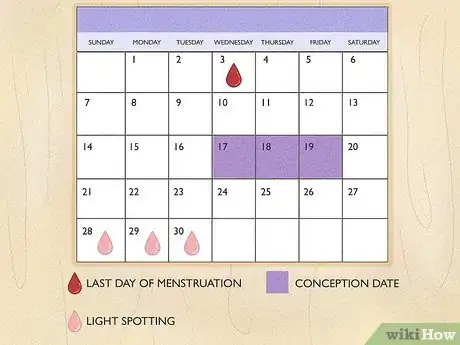









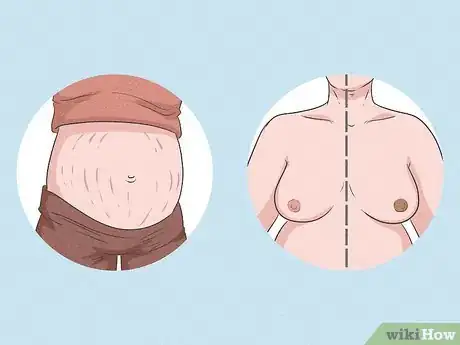
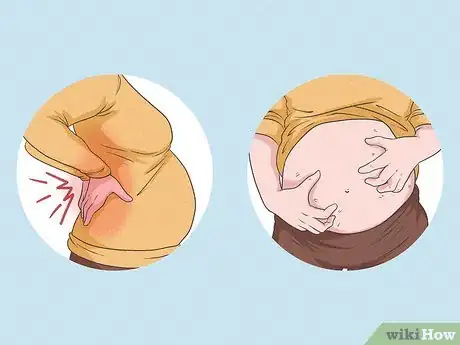

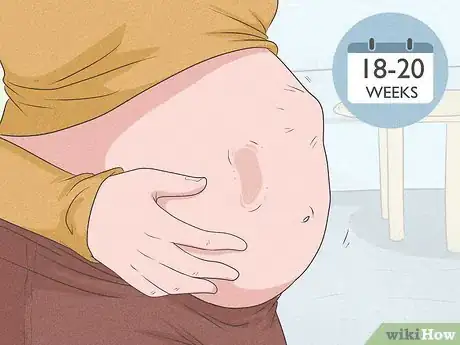





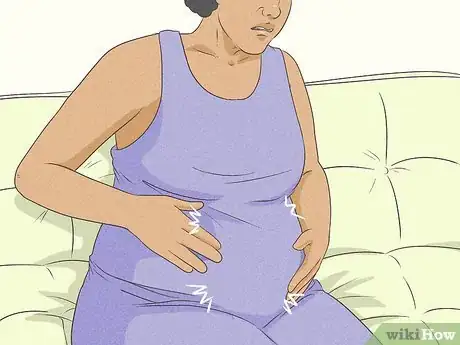

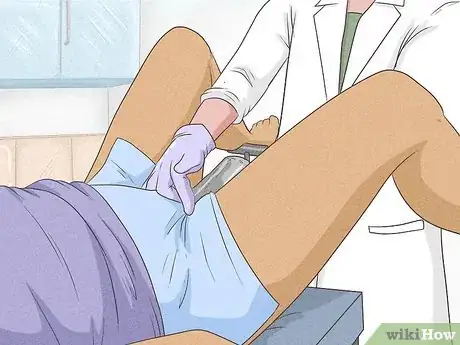
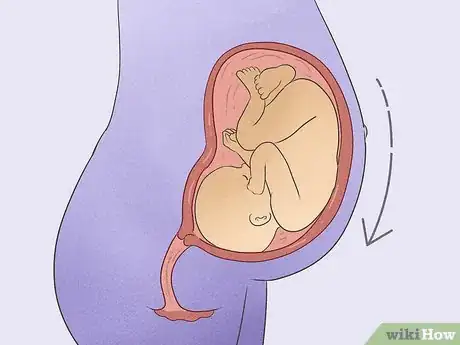





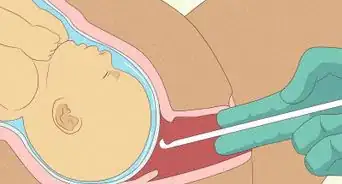

















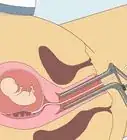





































Medical Disclaimer
The content of this article is not intended to be a substitute for professional medical advice, examination, diagnosis, or treatment. You should always contact your doctor or other qualified healthcare professional before starting, changing, or stopping any kind of health treatment.
Read More...